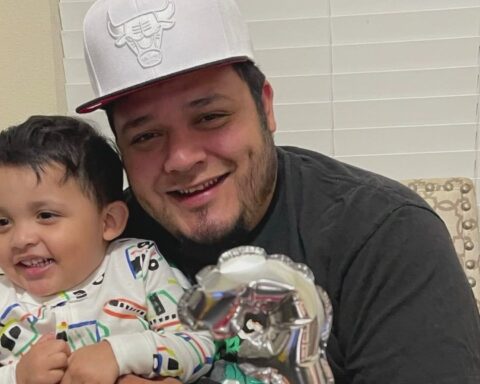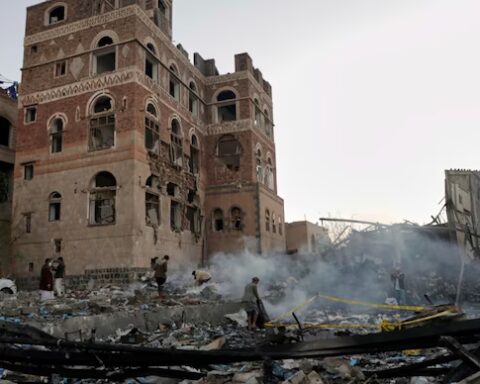The Trump administration has conceded that it mistakenly deported a Maryland father from El Salvador, sending him to a notorious mega-prison despite his protected legal status in the U.S. Kilmar Abrego Garcia, a family man with no criminal record, was swept up in a mass deportation operation targeting alleged gang members, only to find himself locked in El Salvador’s Terrorism Confinement Center (CECOT).
The admission marks a rare acknowledgment of error by the administration, but it insists that U.S. courts lack the authority to order his return, leaving Abrego Garcia’s family in anguish and raising serious questions about the due process of recent deportation policies.
It’s April 1, 2025, and the case of Kilmar Abrego Garcia has thrust the Trump administration’s aggressive immigration crackdown into the spotlight.
On March 15, the administration deported hundreds of immigrants, mostly Venezuelans, to El Salvador under the controversial Alien Enemies Act of 1798, a wartime law invoked to target alleged members of the Venezuelan gang Tren de Aragua. Amid this operation, Abrego Garcia, a Salvadoran with protected status, was erroneously included. His story, detailed in a recent court filing, underscores the human cost of the administration’s hardline approach and the systemic flaws that have led to such mistakes.
A Family Man Caught in the Crossfire
Kilmar Abrego Garcia’s journey to the U.S. began in 2011 when, at 16, he fled gang threats in El Salvador. By 2019, he had secured a form of protected legal status known as “withholding of removal” from a U.S. immigration judge, who determined that returning to El Salvador would likely result in his targeting by gangs. Now 30, Abrego Garcia had built a life in Maryland with his U.S. citizen wife and their 5-year-old disabled child, also a U.S. citizen. He worked to support his family and had no criminal record, a fact the Trump administration does not dispute.
On March 12, Abrego Garcia’s life unraveled. After picking up his son from his grandmother’s house, ICE officers stopped his car, claiming his protected status had changed. Despite his wife arriving to take their child, Abrego Garcia was handcuffed and taken away.
Within two days, he was transferred to an ICE staging facility in Texas, where he was grouped with other detainees slated for deportation to El Salvador. His family lost contact with him, and it wasn’t until March 16 that his wife spotted him in news photographs released by Salvadoran President Nayib Bukele, showing deportees arriving at CECOT, a mega-prison known for its harsh conditions and human rights abuses.
Trump Administration Concedes Maryland Father Was Mistakenly Deported
The Trump administration’s admission came in a court filing on March 31, acknowledging that Abrego Garcia’s deportation was an “administrative error.” Despite knowing of his protected status, ICE removed him to El Salvador, where he was sent to CECOT alongside hundreds of alleged gang members. The government’s filing, however, argued that U.S. courts lack jurisdiction to order his return, citing Trump’s “primacy in foreign affairs.”
This stance has drawn sharp criticism from legal experts and immigrant rights advocates, who argue that the administration is attempting to evade accountability for a grave mistake.
Abrego Garcia’s attorney, Simon Sandoval-Moshenberg, told The Atlantic that he has never seen a case where the government knowingly deported someone with protected status. He is pushing the court to order the administration to request Abrego Garcia’s return, even suggesting that the U.S. withhold the $6 million annual payment to El Salvador for housing deportees.
The administration, however, has doubled down, labeling Abrego Garcia a “danger to the community” and an active member of the MS-13 gang—a claim Sandoval-Moshenberg calls baseless, pointing to a 2019 incident where Abrego Garcia was detained with others in a Home Depot parking lot but never charged.
The Mega-Prison Nightmare: Conditions at CECOT
The Terrorism Confinement Center, or CECOT, where Abrego Garcia is now held, is a 40,000-capacity facility in Tecoluca, El Salvador, often described as a symbol of President Nayib Bukele’s brutal anti-crime strategy.
Opened in 2023, the prison has been criticized by human rights organizations for its inhumane conditions. CNN reported during a visit that cells, designed for 80 inmates, lack basic amenities like sheets, pillows, or mattresses, with prisoners confined for 23.5 hours a day. Open toilets and plastic buckets for washing are the norm, and human rights groups have documented allegations of torture, mass trials, and inmate deaths.
Abrego Garcia’s family fears for his safety in this environment. The Trump administration deported 261 individuals to CECOT on March 15, including 238 alleged Tren de Aragua members and 23 Salvadorans, as part of a deal where the U.S. pays El Salvador $6 million annually to house them.
Families and lawyers, however, argue that many deportees, like Abrego Garcia, were wrongly labeled as gang members, often based on flimsy evidence such as tattoos. The BBC highlighted cases where Venezuelan families identified loved ones in CECOT footage, insisting they had no gang ties and were targeted due to their ink.
A Broader Pattern of Deportation Controversies
Abrego Garcia’s case is not an isolated incident but part of a broader wave of deportations that have sparked legal and ethical debates.
The Trump administration invoked the Alien Enemies Act to deport hundreds of Venezuelans, a move that defied a federal judge’s order to halt the flights. U.S. District Judge James Boasberg had issued a temporary restraining order on March 15, demanding that planes in the air return to the U.S., but the administration argued the order came too late.
White House Press Secretary Karoline Leavitt claimed the courts have “no jurisdiction” over the president’s foreign affairs powers, a stance that has fueled accusations of overreach.
Immigration attorneys have decried the lack of due process in these deportations. The New York Times reported that the administration provided little evidence to support claims that deportees were gang members, with some identified solely based on tattoos like stars or roses—common designs that do not necessarily indicate gang affiliation. NBC News spoke with families who recognized loved ones in CECOT footage, insisting they were not criminals but were deported under the wartime law without hearings. The American Civil Liberties Union and other groups have challenged the use of the Alien Enemies Act, arguing it violates constitutional checks and balances.
The Human Cost and Legal Battle Ahead
For Abrego Garcia’s family, the emotional toll is immense. His wife and child, both U.S. citizens, are left without their primary provider, and the lack of communication with him in CECOT has deepened their distress. Sandoval-Moshenberg is fighting to bring him back, but the administration’s refusal to acknowledge the court’s authority poses a significant hurdle. The case raises broader questions about the Trump administration’s immigration policies, particularly its willingness to prioritize speed over accuracy in deportations, even at the cost of separating families and violating legal protections.
Human rights advocates warn that CECOT’s conditions could lead to indefinite detention for deportees like Abrego Garcia. Bukele has stated that gang members will “spend their entire lives in prison,” and his justice minister vowed that none who enter CECOT will leave. This grim reality underscores the stakes for Abrego Garcia and others who may have been wrongfully deported. The administration’s deal with El Salvador, while framed as a cost-saving measure compared to U.S. imprisonment, has been criticized as a means to outsource human rights abuses, with little oversight of the deportees’ fates.
A Call for Accountability
As the legal battle over Abrego Garcia’s case unfolds, it serves as a stark reminder of the consequences of unchecked immigration enforcement. The Trump administration’s admission of error is a small victory for advocates, but its refusal to act on that admission has left a Maryland family in limbo. The broader implications of the administration’s deportation strategy—relying on outdated laws, minimal evidence, and international deals with controversial regimes—continue to draw scrutiny. For now, Abrego Garcia remains in CECOT, a symbol of the human cost of policies that prioritize political optics over justice.
Focus Keywords: Trump administration, Maryland father, wrongful deportation, El Salvador mega-prison, Kilmar Abrego Garcia, CECOT, Alien Enemies Act, immigration policy, human rights, due process






